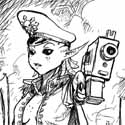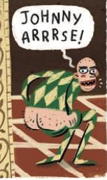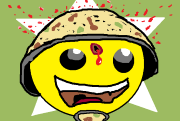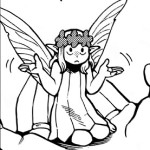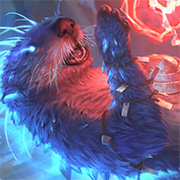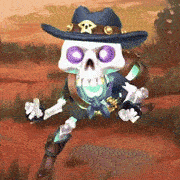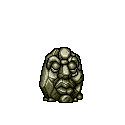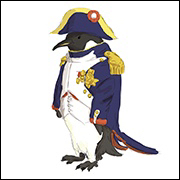|
I very much recommend that players be involved in creating an interwoven conspiracy that affects them all. Not doing so makes things difficult best.
|
|
|
|

|
| # ? Apr 28, 2024 09:47 |
|
Everyone posted:I'd probably go with "Congratulations, you were all victimized by the Parasol Corporation, which has a penchant for human experimentation. Also a fetish for weird mansions with secret doors and puzzle locks. Maybe keep that bit on the DL around anyone working for Capcom..." From what I’ve read, that seems to be the default. It’s assumed that most games will have the Deviant PCs been created by one Conspiracy. Other Conspiracies only really make their presence known if the group wants an extended campaign and needs something to fight after The Big Bad. So in your example, once the Deviant gang takes down Parasol, they celebrate only to discover that there’s others out there being experimented on by some dimensional research facility in White Mesa, and rumors of their research coming from an underwater city run by a libertarian billionaire, etc etc.
|
|
|
|
This setup seems really fun, TBH
|
|
|
|
 Pathfinder Core Rulebook, Second Edition, part Nine: What the gently caress is a Champion? Well holy poo poo (2 in 6 chance of pun being intended). Freed from the shackles of being D&D 3.5 part 2, Pathfinder 2nd edition has innovated and created a new class! Champion This holy warrior is trained in all armor and no armor, simple and martial weapons and unarmed strikes, with training in Religion, a skill from their god, and 2 more (plus intelligence). We're told champions exist for every alignment, but you're a champion of good, so you have powerful defenses to protect your allies and bystanders, and holy power to take out evil threats. And you'll get the notice of holy spirits. We're heading into unknown territory here. Not much I can do for a history lesson on a new class. I mean, there's the 5E fighter subclass of the name, made by and for people who think "New players  Wait a minute. gently caress me, this is just a paladin, innit? The paladin showed up, I think the Greyhawk supplement for D&D. When Gygax put out AD&D, the paladin was there as a subclass of fighter. Although they gained levels slower (2000xp vs 2750xp to hit 2nd level), the paladin had a fuckton of abilities even at first level. Detecting evil at will. +2 on all saving throws. Lay on Hands for healing 2HP/level. Immunity to disease. Ability to cure disease in others. A constant Protection from Evil aura. At 3rd level, turn undead like a cleric 2 levels lower. At 4th level, acquisition of a Paladin's Warhorse. At 9th level, start casting cleric spells. Get a holy sword, not only were they the only ones to get the full power out of a Holy Avenger, they could use it to dispel magic. As restrictions, they could only have 10 magic items (1 armor, 1 shield, 4 weapons, and 4 others), could only keep enough treasure to support themselves and their henchmen in a modest standard... and also to build and maintain a small keep; that treasure is after they tithed 10% (even clerics didn't having tithing built into their class). You had to be Lawful Good (thought Awful Good was acceptable at many tables). Also, to be a paladin, you needed a 17+ in Charisma, which is really hard to get when you're already fudging that 18 for strength. When Unearthed Arcana showed up, the Paladin was re-sorted as a subclass of Cavalier, turning this In 3.5, the Paladin continued the schtick of being Better Fighter. While the fighter got a ton more feats, the paladin continued with better saves, a free healing ability, cleric spells and undead turning and immunity to disease. They also pick up immunity to fear (granting allies a bonus on saves) and gain Smite Evil, adding their charisma modifier to the attack roll and their level to damage. They do still have to be Lawful Good (there would be some chipping away from this in optional supplements, and 4 and 5e would toss it out). I'd feel safe making a bet that the paladin became the Champion in PF2 because a vocal portion of the design staff wasn't having Non-LG paladins, no way no how. One of your features as a Champion is the Champion's Code. You get some tenets held by all champions of an alignment, in this case, good (so it sounds like you could have a neutral or evil champion... but we'd really like you to buy this book for those rules). Your god may have other rules. So yeah. That's a thing that's followed the paladin. I guess because it was so powerful back in AD&D, they needed restrictions, which included only doing Lawful and Good acts. Stray from the path, you lost your special powers and became a fighter (maybe you could atone, maybe not). This might not be so bad, but a lot of DMs felt that if a paladin could fall, then it was their duty to make sure they fell. The trolley problem and Kobyashi Maru meet D&D and whatever choice you made, you done hosed up. Yeah, lots of DMs made the game "fun" in the 80s and 90s (and the 00s and 10s and 20s, it's sometimes a marvel this hobby is still going). TO THEIR CREDIT Paizo does state that your tenets will never create a No-Win situation. If the evil king asks you where the peasants he wants to slaughter are, you can lie to him because the stricture against lying is less important than the one about protecting the innocent. You will get smacked down if you try to game the situation. quote:for example, promising not to respect authorities and then , to keep your word, disrespecting authorities Straying from your alignment or violating your code of conduct will lose you your focus pool and divine ally until you complete an atone ritual. Besides this, so far, only the barbarian can lose class abilities and they just have to spend a day centering themselves. I get it being thematic, but we're putting roadblocks and restrictions on some melee classes. Looking ahead, the cleric can also lose powers. It's thematic and maybe appropriate. But it doesn't affect everyone equally. Sorcerers aren't worried that they wore blue when their blood line favor red, wizards aren't going to break the rules of magic and lose their 3rd level spells. It's an old, bad legacy and in this case seems just doesn't seem right even if Paizo promises they won't take your powers away unless they really have to.  I think someone had a Word of the Day calendar and wanted to get the most out of anathema. Champions come in three flavors or Causes, Lawful, Neutral, and Chaotic, aka Paladin, I'm sure you can figure out ways these will be a problem. For these, all champions get the Lay On Hand devotion spell (5E had a habit of doing this, re-writing class features as spells). They get Deific weapon, basically only wielding their god's chosen weapon. If it's a simple weapon, they get to bump up the damage die one size. Each alignment gets a reaction, used when an ally within 15 feet is struck by an enemy within 15 feet. The paladin grants resistance and can swing on the enemy if in range. The redeemer gives a choice, either the ally is unharmed, or the ally gets resistance to the damage and the enemy is Enfeebled 2. Liberator grants resistance and the target can make a save to end a paralyzing or immobilizing thing, or make an escape roll. You get a divine ally. While this could be the traditional paladin steed, it could also be a sword spirit granting a free magical effect on your weapon, or a shield spirit making your shield harder to break. Divine smite is a thing, now available at 9th level and tied to your reaction. There's a little restriction, but mostly you're doing your Charisma mod as persistent damage. You gain mastery proficiency with spells at 17th level, and legendary armor proficiency. At 19, you learn Hero's defiance as a devotion spell. For the feats, there's a goodly number that are keyed to one cause or another, so your choices are already limited. A lot of the remainder have tenets of good as a pre-req, so I guess Neutral Champions will need to re-invent the wheel for their feats. Once again, class-features from the previous editions have been chopped out and offered back up as feats, including Divine Grace (here a reaction to get +2 on your next save), Aura of Courage (reduces frightened duration), Divine Health (resistant to disease and +1 on saves, with a success becoming critical). There are Oaths to swear, extending your tenets to be really rough on a monster type and getting some bonus. 20th level feats improve your divine ally. Your steed gets tougher, gains flight, though is vulnerable to evil damage. The sword spirit adds some more properties you can assign. The shield spirit, your shield is automatically raised and even harder to break. 18th level had celestial form, you look like an angel, gaining a trait of a divine servant of your god, and wings. Or Ultimate Mercy, you can bring someone back to life who died after you last took a turn, using lay on hands to give them 1 HP. *Back in Dragon 106, Christopher Wood wrote an article, A Plethora of Paladins. With the LG Paladin in the PHB, and the CE Anti-Paladin in Dragon 39, this featured classes filling the rest of the alignment wheel. Myrikhan and Garath were the NG and CG paladins, and there were Lyan (LN), Paramander (N), Fantra (CN), Illrigger (LE), and Arrikhan (NE). They were NPC only The opening narration of the article had a paladin riding out to confront an anti-paladin, two primal forces of nature on a collision course. And ends with quote:. . The forest thinned and became a sea of thorns. Beyond it, Aan saw the ominous towers of Castle Gulgazh, the last rays of the sun cleeding red around their edges.
|
|
|
|
An orange... moon? 
|
|
|
|
srhall79 posted:I mean, there's the 5E fighter subclass of the name, made by and for people who think "New players Oh boy, when I last played 5E, it took me one read to sus out that it's the worst subclass: Battlemaster or some dumb stuff: gives you fighter powers so you'd have to something to do in a fight. Eldritch Knight: solves the issue of fighters having nothing to do by giving you magic. Champion: idk, some bonus to athletic check.
|
|
|
|
JcDent posted:Oh boy, when I last played 5E, it took me one read to sus out that it's the worst subclass: it's also "funny" because the Champion doesn't even get to do deal more damage than the Battlemaster, unless the adventuring day is structured in such a way that the Battlemaster somehow never gets any Short Rests so the Champion is a less interactive, less capable subclass, that doesn't get anything "in return" for their design being entirely passive
|
|
|
|
Don't remember it having anything that would make it "championy," no matter how you cut it. Powerful single fighter, meant to fight heroic duels? A winning gladiator? Inspiring hero meant to hold a sword aloft while standing atop a pile of dead minions? [x] None of the above.
|
|
|
|
I kinda miss WHFRP's take on its Champion class, because it was the final evolution of the pure fighter class. That game made the point of describing it as a martial artist class, because you simply do not get that good at swordsmanship or whatever without being seriously passionate about it.
|
|
|
|
srhall79 posted:I'd feel safe making a bet that the paladin became the Champion in PF2 because a vocal portion of the design staff wasn't having Non-LG paladins, no way no how. During the playtest, there was a certain very loud and active poster on the Paizo boards denouncing the idea of the name "paladin" being used for anything other than the traditional LG paladin.
|
|
|
|
Everyone posted:As a potential GM the conspiracy bit makes me a little leery. Like, if I have five players in my game, am I really going to have to develop five separate antagonistic factions who are pursuing my players' characters? Emphasis factions. So it's not something where it's one character, like "Sometime in his past, Joe the Vampire pissed off Steve the Angry Werewolf who now wants to eat Joe's unbeating heart and/or otherwise make Joe go from undead to straight up dead." I'd have develop agents/minions, lieutenants and some kind of boss for five different organizations. Which, honestly, gently caress that. It doesn’t work like that, designing a conspiracy is done with the group in the first session and takes from top to bottom about half as long as making a character. There’s a whole subsystem there that comes up later that I REALLY don’t want to delve into now because it deserves its own update.
|
|
|
|
This creates a very silly Murphy - "don't commit anathema" as the most important tenet works in most cases, but the anathema of Cayden Cailean is "waste alcohol". So a Champion of Cayden Cailean can harm innocents if it avoids beer going to waste. (Draws sword abruptly and points it at cowering peasant) I said CHUG! But the Champion is your 4e tank-style fighter with a ton of reactions to people attacking others, moving around nearby, and so on. As with a lot of Defender type classes, you can make this extremely powerful having an enemy flanked by two Champions so that no matter which one they hit, they get a Retributive Strike from the other one. The favorite power option seems to be a Fighter with Champion multiclass to get the extra attacks on reaction, because more attacks for Fighter is more crits for Fighter and Fighter loves crits.
|
|
|
|
hyphz posted:This creates a very silly Murphy - "don't commit anathema" as the most important tenet works in most cases, but the anathema of Cayden Cailean is "waste alcohol". So a Champion of Cayden Cailean can harm innocents if it avoids beer going to waste. How is that a Murphy.
|
|
|
|
gradenko_2000 posted:it's also "funny" because the Champion doesn't even get to do deal more damage than the Battlemaster, unless the adventuring day is structured in such a way that the Battlemaster somehow never gets any Short Rests I've let my Fighter players just have the Champion features for free and let them pick one of the other subclasses. Champion is really bad; I've played one.
|
|
|
|
Pvt.Scott posted:I've let my Fighter players just have the Champion features for free and let them pick one of the other subclasses. Champion is really bad; I've played one. Yeah I've heard of a lot of groups doing the same with Battlemaster. Hell you could probably let barbarian, monk, paladin, fighter, ranger and rogue *all* get Battlemaster for free and nothing would change except the martial classes get to have more fun
|
|
|
|
Xiahou Dun posted:How is that a Murphy. Not sure what a Murphy is in this context, but the idea of a holy warrior for good threatening an innocent with death to force them to risk alcohol poisoning in order to avoid an "anathema" seems pretty broken and hosed up to me.
|
|
|
|
Everyone posted:Not sure what a Murphy is in this context, but the idea of a holy warrior for good threatening an innocent with death to force them to risk alcohol poisoning in order to avoid an "anathema" seems pretty broken and hosed up to me. So maybe don’t make up a religion that explicitly does that?
|
|
|
|
Xiahou Dun posted:So maybe don’t make up a religion that explicitly does that? This is good advice for a few things in golarion
|
|
|
|
Isn’t PF1e the game that made a God of Child Sexual Abuse, complete with a curated spell list for worshippers centered around mind control and hiding evidence?
|
|
|
|
A Murphy is a rule that has unintentional, often very weird consequences. Having a religion that explicitly values something over human life with followers who do that is just a bad setting element. It's not weird considering, you know, much of the history of religion in the actual world, and it's sufficiently obvious that it's hard to believe it was unintentional.
|
|
|
|
This is a non-example anyway because the rule is for you, the champion, to not commit the anathema. Plus the further rules for your cause (alignment) have more details on how you'd interpret things, and all of them err on the side of not murdering some peasant for not following your code. Sorry, this is arguing for Lawful Stupid paladins that the game itself isn't. And the solution would be to just chug the rest of the beer yourself anyway.
|
|
|
|
I remember being disappointed by the NG and CG Champions because their reactions are just less useful than Smite Badguy
|
|
|
|
Cayden Cailean, the God of Being a Good Guy and Also Going to Get a Drink Afterwards, would not want you to kill someone if you thought they were going to waste alcohol, so it's a silly question.
|
|
|
|
The Champions in Monte Cook's Arcana Unearthed/Evolved were interesting as being Champions of concepts like Justice or Chaos or Darkness or of a particular culture. They could be religious, but they frequently weren't.
|
|
|
|
If you're a good guy paladin and it's a sin to waste booze wouldn't the logical action be to throw yourself in the path of any booze being wasted so you can chug as much as possible
|
|
|
|
Yeah, I am pretty sure if the Paladin of Beer God saw someone abandon their cup, the paladin would drink it instead.
|
|
|
|
What does the good guy beer paladin do when a man walks into a bar and asks him if he'll buy him a single celebratory drink in honor of getting his 1 year sober pin? Checkmate, theists.
|
|
|
|
Sorry I know we've moved on from Deviant's clades a bit, but to me at least having them be the origin point before you even got your powers feels...uninspiring. Compare it to, say, if Changeling's splats were based on whether you were tricked/cajoled/blackmailed/etc into going off with the True Fae - that feels like a question I can come up with the answer to myself pretty easily, based on other ideas the game should be giving me as I read it. I'm not particularly sold on it being a reflection of the conspiacies' attitudes, either - this is how I'm making my character before we even play, so I don't really care if it reflects IC reality one-to-one. Ultimately though it sounds like this all has little bearing on how the game plays out, so I'm still interested to hear more.
|
|
|
|
SkeletonHero posted:What does the good guy beer paladin do when a man walks into a bar and asks him if he'll buy him a single celebratory drink in honor of getting his 1 year sober pin? The beer paladin buys the man a non-alcoholic drink to celebrate, obviously, and then gently tries to get the man out of the bar before he can fall off the wagon.
|
|
|
|
All beers are sacred, and that includes root beer and ginger beer, for it is His will that we drink responsibly and honor thy Designated Driver.
|
|
|
|
Benagain posted:If you're a good guy paladin and it's a sin to waste booze wouldn't the logical action be to throw yourself in the path of any booze being wasted so you can chug as much as possible Pretty sure this is a potential character concept for a Knight of the North Docks in Spire.
|
|
|
|
Everyone posted:Not sure what a Murphy is in this context, but the idea of a holy warrior for good threatening an innocent with death to force them to risk alcohol poisoning in order to avoid an "anathema" seems pretty broken and hosed up to me. A "Murphy's Rule" is an interpretation of a rule from an RPG that has silly or amusing consequences - there used to be a thread for them way back. As with most Murphies this one is exaggerated. It would be perfectly acceptable for a Champion to ensure that the alcohol was distributed to those who could not afford it instead, for example. It's even possible that since the anathema is "waste alcohol", not "allow alcohol to be wasted", it's fine as long as the Champion themselves always drinks what they order. In summary, um, read Murphy's Rules if you can still get the scanned copy (I think you can). It's good, if extremely retro by now.
|
|
|
|
hyphz posted:A "Murphy's Rule" is an interpretation of a rule from an RPG that has silly or amusing consequences - there used to be a thread for them way back. We also have a thread: https://forums.somethingawful.com/showthread.php?threadid=3533536
|
|
|
|
Cureall posted:Sorry I know we've moved on from Deviant's clades a bit, but to me at least having them be the origin point before you even got your powers feels...uninspiring. Compare it to, say, if Changeling's splats were based on whether you were tricked/cajoled/blackmailed/etc into going off with the True Fae - that feels like a question I can come up with the answer to myself pretty easily, based on other ideas the game should be giving me as I read it. I'm not particularly sold on it being a reflection of the conspiacies' attitudes, either - this is how I'm making my character before we even play, so I don't really care if it reflects IC reality one-to-one. Splats work best, I think, when you have to start with a template that already comes with core assumptions (vampires drink blood and avoid the sun, werewolves change shape and avoid silver) but you need something to differentiate Vampire A from Vampire B. In a game like Deviant where the big part of the appeal is having a pile of widgets to built your own unique monster from the ground up, choosing origin & clade only feels like a vestigial extra step you have to cross before you can build the rest of your PC.
|
|
|
|
Benagain posted:If you're a good guy paladin and it's a sin to waste booze wouldn't the logical action be to throw yourself in the path of any booze being wasted so you can chug as much as possible “Oh man, I’m so wasted! Caylen forgive me, but I cannot finish this beer bong.” The best *takes the bong hose* “… but thou shalt not bear it alone!” CHUG CHUG CHUG
|
|
|
|
Cooked Auto posted:An orange... moon?  Just like in Castlevania!
|
|
|
|
Not sure if I would call that moon in particular orange. But that might just be me.
|
|
|
|
 Deviant: The Renegades, Chapter 2: Setting (Pt. 2) Conspiracies do everything they can to gather and keep as many deviants as possible. They tend to form around or snap up progenitors whenever they find them, even if that progenitor has a completely different aesthetic or outlook; they’ll find a way to use whatever they produce. They also recruit pathologicals they find by promising them a safer life and even escapees willing to prove they’ll stay loyal this time (often by making them turn on other renegades). Once they have deviants in their grasp, they’ll usually maintain as tight a hold over them as possible, but no matter how thorough their security procedures are, there’s no such thing as an impenetrable system; ultimately, whether due to security oversights, unforeseen events, or bad bookkeeping, somebody might be able to pull off an escape. Once they do, they’re on the streets as a renegade – and given how fixated deviants can, inventions, that tends to quickly become conspiracy’s newest problem. Unfortunately, just because you’ve escaped doesn’t mean you’ve left them behind for good. By nature, conspiracies are subtle, deal in information, and have their hands on the levers of power; any deviant that tries to go back to their old life or immediately go loud and blow the conspiracy’s cover usually gets found and either retaken or killed before long. Surviving renegades tend to take one of a few options:
None of these are easy to pull off, especially if you want to strike back at conspiracies at the same time, so most renegades will want to find allies. Even building enough trust in another renegade to work with them takes time and effort. Trust never comes easily to renegades; even beyond their own issues, too many deviants they encounter are devoted in disguise, compromised by a conspiracy, or just unstable and paranoid enough to attack without warning. Renegades often set up highly anonymized message boards to share tips and tricks on how to survive (which they do quite freely, all the better to support other renegades), but meetups are rare and risky even with the best security they can get their hands on. However, since conspiracies tend to produce as many deviants as possible, somebody out there often has a plan on how to take someone down good enough to get other deviants on board. Some renegades build connections with normal humans despite the hurdles, either features of their former life they stayed in contact with, people with grudges of their against the conspiracies, or manipulators with their own agendas. Some renegades try to headhunt and rescue new deviance or happened to escape in a group; these cohorts often bond more closely than allies of convenience. Others will take new renegades under their wing, teaching them how to survive and how to work against conspiracies. The back of the book has a few sample settings complete with their own conspiracies, some of which are actually run by and for deviants – though they’re the exception and not necessarily friendly to anyone not willing to sign on. But as risky as it is, most renegades gravitate towards operating small cells better fight the enemies arranged against them. 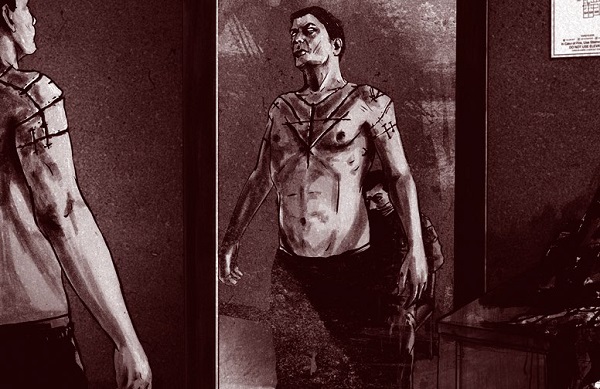 Hard pivot to talking about instability. I’ll cover the exact mechanics later (the book just talks theory here), but instability is a representation of how well a deviant is dealing with their scars. Instability tends to accumulate, making deviants more miserable and unstable (in multiple senses of the word) over time. Sometimes it makes their variations harder to control or more obvious, sometimes it gives them new variations they can’t control, sometimes it causes issues ranging from hallucinations to mood swings to growing extra eyes whenever it’s hot outside – since instability ultimately comes from aftereffects of a broken soul running amok, just about anything negative can happen. The worse their control over their body and mind becomes, the more unstable they become. Without a way to remove instability, deviant would inevitably collapse into mutation and insanity. Fortunately, evoking your loyalty or conviction heals up instability. Broken souls make it hard for deviants to maintain relationships with others, but if they can pull it off, those relationships give deviants a way to feel more human again and bring their lives under control. Most deviants have a small set of touchstones, people (or very rarely places or groups of people) they feel strongly towards. Acting to support or protect people they love (loyalty touchstones) or acting against people they hate (conviction touchstones) heals instability, often quite efficiently. Most renegades have a lot more conviction touchstones than loyalty touchstones, a consequence of being on the run and hating the people who violated them, but the few that reverse the pattern become guardians, inhabitants of a focused state of mind that brings deviants the closest they’ll ever come to inner peace. However, as long as they have any touchstones active, they can hope to hold off instability at least for a while. Loyalty touchstones tend to fall into one of two categories: people from their former lives who refused to back away when they came back and people they befriended after going through divergence, no matter how hard it was. While the former are often family member or close friends, the relationship doesn’t necessarily have to be close or non-transactional; a former coworker who doggedly keeps in touch or an old roommate that lets them crash because they don’t care enough to ask questions and treats conspiracy agents with the same hostility they treat everybody else are perfectly valid loyalty touchstones. The latter are usually hard-won allies or confidants; sometimes they’re members of their cohort, but people who helped them escape, human conspiracy enemies, random people who gave them a hand in time of need, or even a frequent hookup who’s kind of into the whole tentacle thing counts too. Loyalty touchstones give a deviant a sense that they’re important to someone, and in return they feel compelled to look after and protect them. The relationship between a deviant and a loyalty touchstone, notably, does not have to be a healthy one; the game even has a sidebar walking storytellers through how to gently ask people if they have triggers around abusive relationships the group should avoid. It can also be positive or distant as much as the player likes, as long as there’s still a relationship there. While conspiracies generally don’t understand why touchstones exist or how they work, they usually figure out renegades have people they care about and often try to manipulate them by harassing the touchstone and making their life harder. They rarely actually brutalize or kill loyalty touchstones (partly because that’s a great way to make a renegade go loud and start destroying assets, partly because that’s a huge dick move from the storyteller), but a loyalty touchstone is as much a liability as an asset. The book subtly encourages storytellers to force players to choose between protecting a loyalty touchstone and furthering their agenda against a conspiracy. 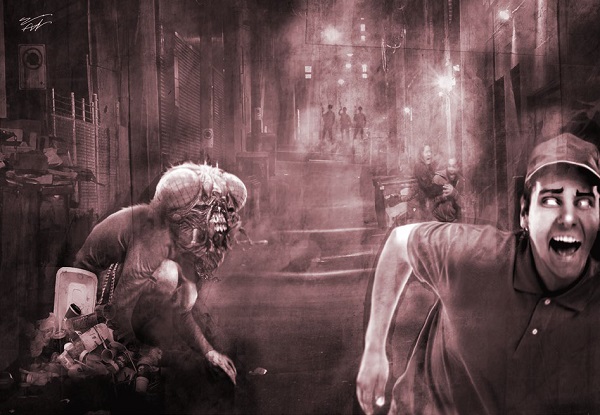 Conviction touchstones are a deviant’s enemies, almost always conspiracy members; progenitors and personal tormentors tend to get top billing. While deviant invokes a loyalty touchstone by protecting them, they invoke a conviction touchstone by acting against them in a substantive way – anything from nearly killing them to setting their plans back a few weeks, it doesn’t matter, just has to be some kind of significant blow. But as much as pursuing a conviction benefits a renegade, it may not benefit their cohort, situation, or even themselves in the long term, and a lot of conspiracies are perfectly aware of the renegades acting against them and will actively try to bait them. It’s entirely possible to be a deviant without any touchstones, though going feral like that is something you absolutely want to avoid. A few deviants either lose all their touchstones faster than they can replace them (a lot harder than it sounds due to mechanics we’ll cover later), while others are too confused and traumatized after the divergence to clarify who they love or hate – or something ineffable goes wrong and a deviant rolls off the slab unable to form bonds with others. These are ferals, deviants who don’t have touchstones, and something about that condition makes it impossible for them to form new one. Without loyalty or conviction to indulge in, the deviant has no way to efficiently dump instability, which means they’ll probably be dead from it by the end of the year. Ferals that don’t escape usually get marked down as flawed implementations of the process and are experimented on, used as disposable shock troopers, or just euthanized. Others revert to their basic instincts and run into the woods to live (and die) like animals, while still others withdraw into themselves and go somewhere private to die alone. The few remaining ferals, being technically renegades themselves, mix unevenly with what passes for renegade society. Other deviants tend to hold them at arm’s length, but they can and do bond with cohorts, especially cohorts targeting whatever conspiracy made them. These ferals usually function like even more unstable renegades for a few months until they decide to go out in a blaze of glory, often followed by renegade friends who promised they’d put the feral down the moment they go beyond the point of no return. Either that or they just turn on the people around them.  On the other end of the stability spectrum, you can apply many of the same procedures you’d use to create a deviant to an animal, getting you what’s called a manticore. Animals don’t have souls (at least in the same way humans do), meaning they can’t undergo the divergence process in the same way and the resulting hybrids tend to be much stabler and easier to control. Wait, doesn’t divergence only work most of the time because progenitors accidentally break souls? So why would the same methods (and they explicitly are the same methods) make a stable mini-deviant instead of just a dead or hosed up animal? The book doesn’t address that. Anyway, conspiracies create manticores of all kinds for all kinds of reasons. Some are guards, attack animals, or trackers, but these are rarer than you’d think; manticores take a lot of time and money to make, and you can usually hire guards or bribe cops or something to get people who can do the same thing better for less money (though many conspiracies keep those manticores in their back pocket as a trump card). Others are sold as ultra-rare pets to the wealthy and unscrupulous, while others see use as unobtrusive information-gatherers. A miserable few get turned into manticores by accident like pathologicals and turn into urban legends, while an even more miserable group become symbionts, organisms genetically engineered to be implanted into humans to cure health issues or give them variations. But just because they aren’t as unpredictable as deviants doesn’t make manticores perfectly reliable. Many conspiracies try to lift manticores up to human intelligence, only to discover that makes their test subjects develop souls that can break just like any other deviants’ (and that may be the basis for some genotypal deviants). Even manticores that don’t quite reach that level often end up smart enough to resent their servitude and plot their revenge; symbionts often spontaneously inflict scars on their hosts, while other manticores outsmart their distracted or inattentive masters and make a break for it. These manticores can and do hook up with deviants, and there’s even a merit that lets you take a manticore companion. The book never says it outright, but it implies a smarter manticore can count as a loyalty touchstone. I think I’ll call this chapter here. There’s actually a couple of sections I didn’t cover, but those talk about devoted and conspiracies in more detail, and there’s a whole chapter later on on conspiracies I plan on concentrating that information in. Hey, that means we can spend the next update making characters in the next chapter! I’d appreciate a few character ideas to work with; they don’t have to be particularly detailed or heavily grounded in the setting, just things I can work with as we cover the next couple chapters. E: I also need you to choose one of the following options:
Falconier111 fucked around with this message at 01:54 on Feb 15, 2023 |
|
|
|

|
|
|
|

|
| # ? Apr 28, 2024 09:47 |
|
Falconier111 posted:
|
|
|








